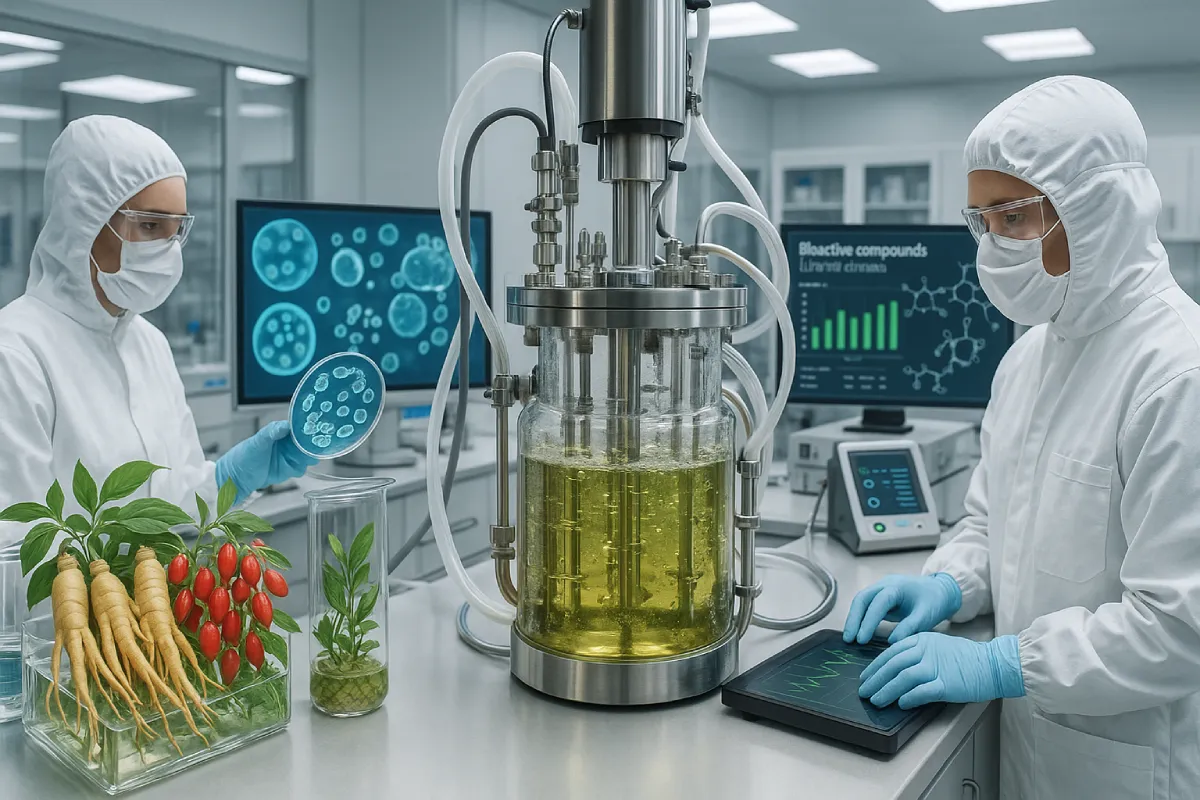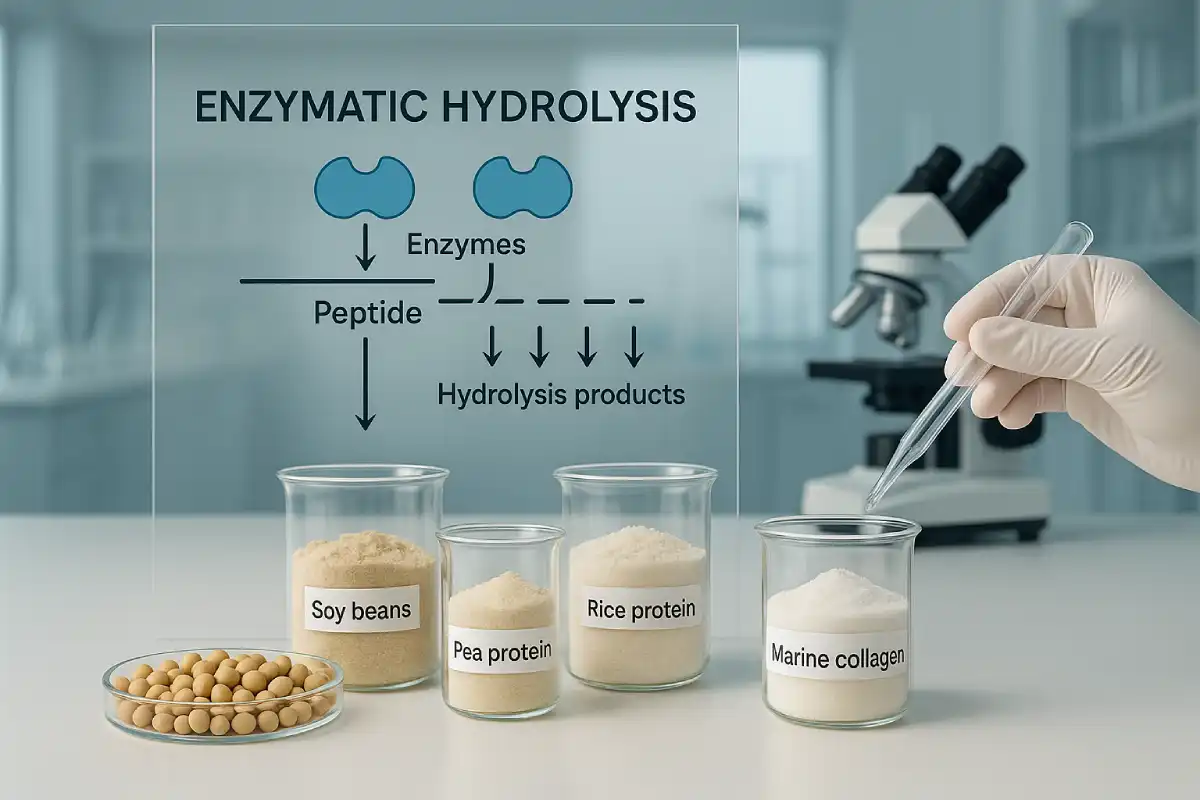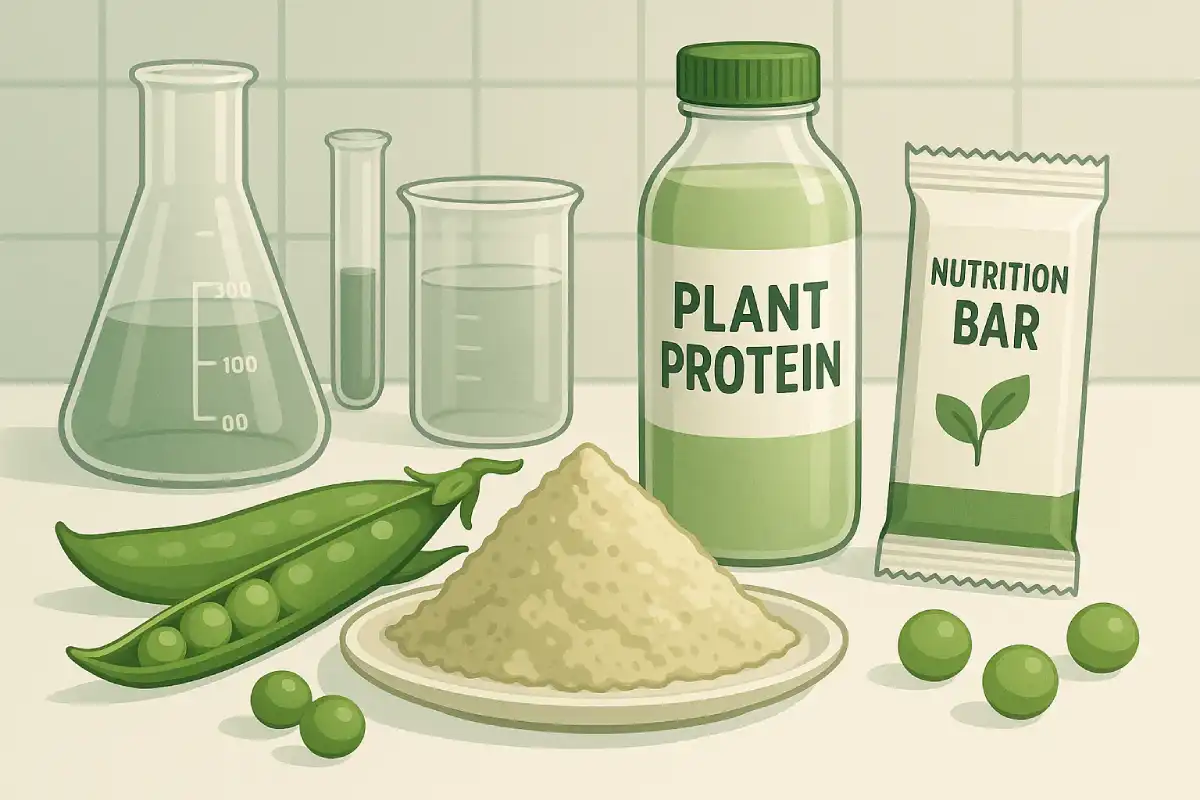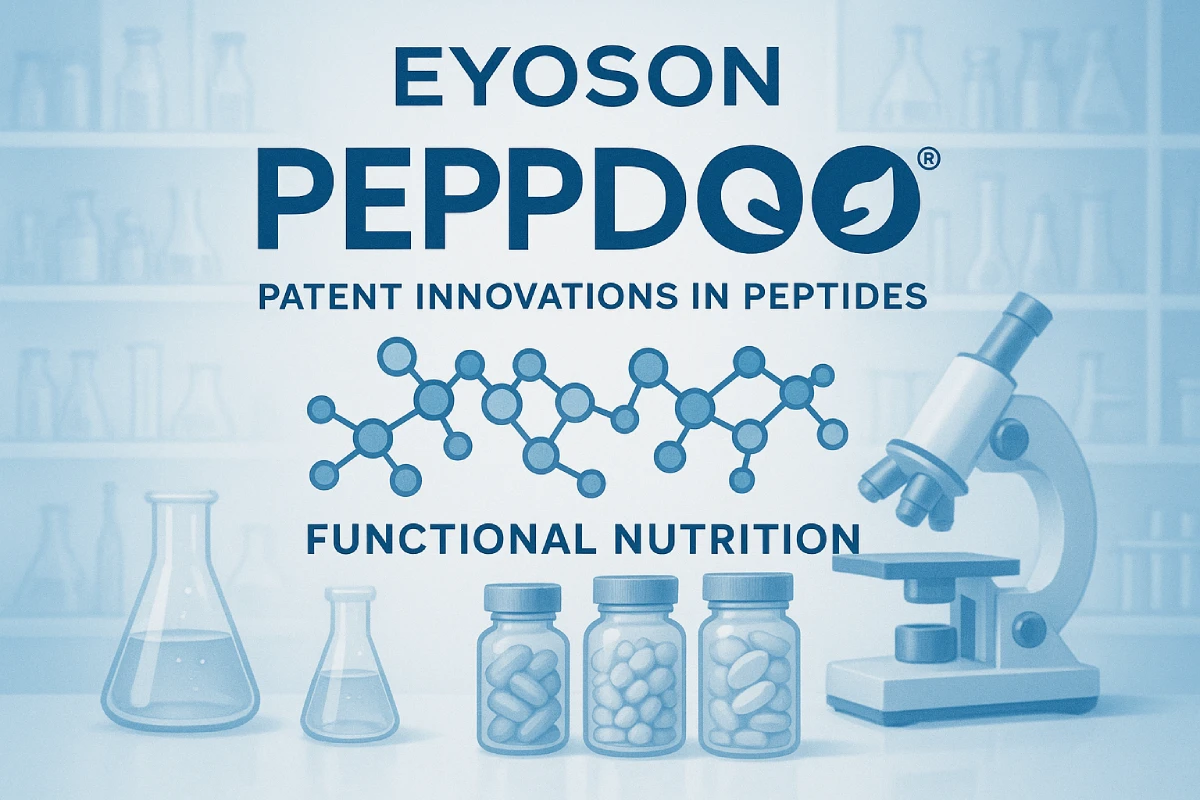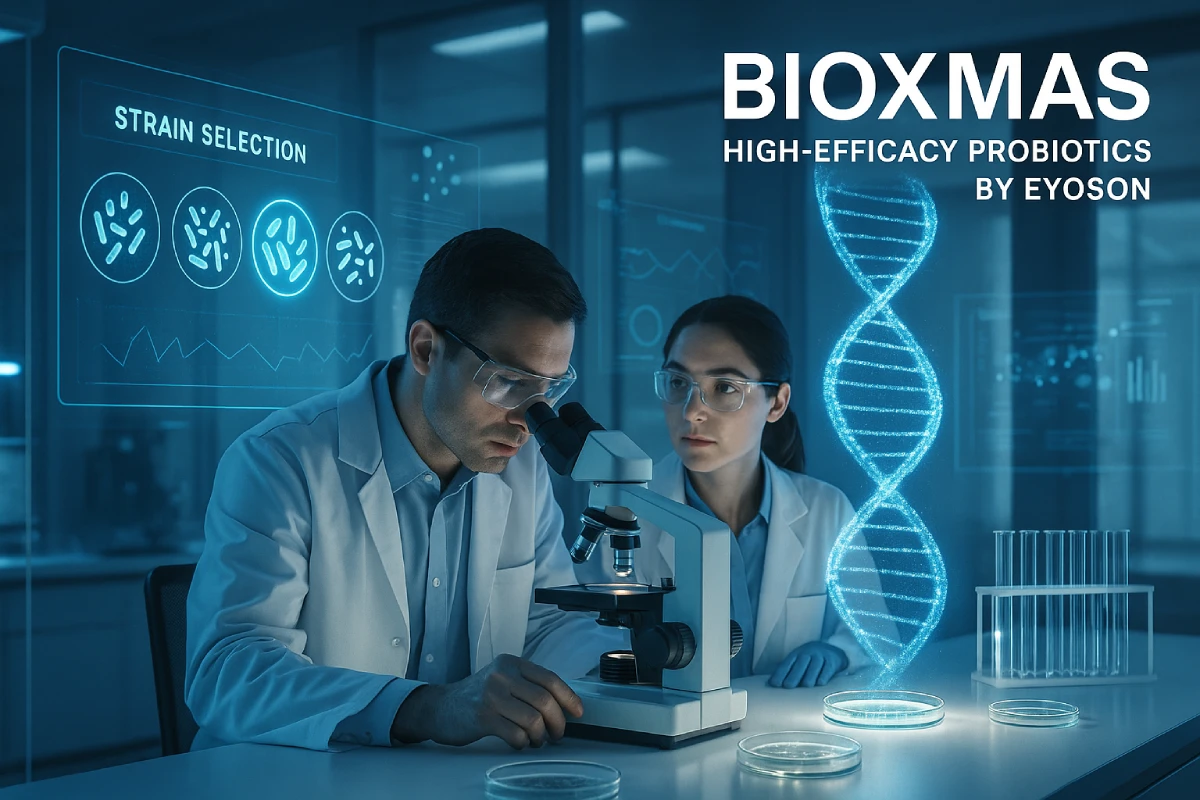Why Rice Peptide Now?
Plant-based, hypoallergenic, and science-driven ingredients have become core to modern functional nutrition. Brands and formulators are under pressure to deliver gentle yet effective proteins that meet clean-label demands while enabling measurable functional benefits for sensitive populations, clinical applications, and mainstream wellness products. Rice peptide — a low-molecular-weight hydrolysate derived from rice protein — is emerging as a practical, science-backed ingredient that answers these market and formulation needs. Backed by EYOSON’s innovation brand PEPDOO®, rice peptide is positioned as a strategic functional peptide for infant formulas, enteral nutrition, sports and senior nutrition, and a wide range of clean-label consumer products. [1].
What Is Rice Peptide — definition and production essentials
Rice peptide refers to short-chain peptides produced by enzymatic hydrolysis of rice protein (typically from rice endosperm or bran fractions). Through directed multi-enzyme hydrolysis and subsequent membrane separation (ultrafiltration/nanofiltration), manufacturers concentrate low-molecular-weight fractions — often predominantly <1000 Da — that deliver rapid absorption, high solubility, and neutral sensory profile compared with intact proteins. These technical attributes make rice peptide particularly suitable for enteral products and any formulation that requires minimal digestive load and low allergenic potential. [2].
Key technical points formulators care about:
- Molecular distribution typically targeted to the 300–800 Da range for fast uptake.
- Production uses multi-enzyme systems and controlled low-temperature processing to preserve bioactivity and control bitterness.
- Final formats: dry powder (spray-dried), liquid concentrates, and custom blends for OEM/ODM integration.
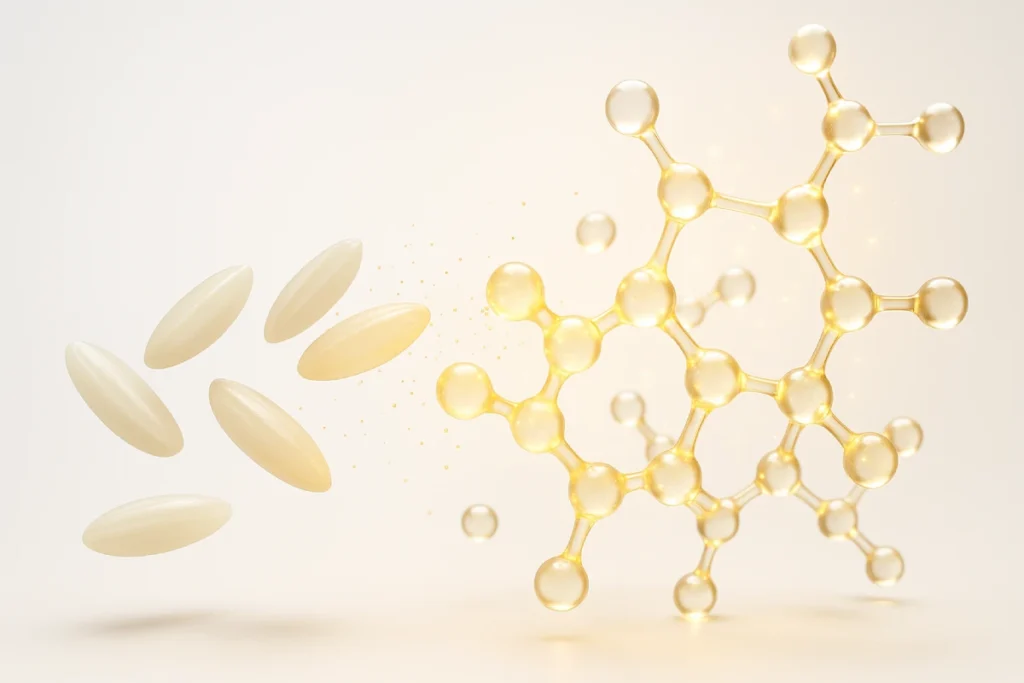
Core functional benefits that matter to B2B formulators
Hypoallergenic & Gut-Friendly
Rice is naturally gluten-free and, when hydrolyzed to peptide fractions, displays very low immunogenic potential, which is why hydrolyzed rice protein formulas are used in pediatric and special medical nutrition. For brands developing infant, maternal, or CMPA-sensitive products, rice peptide minimizes allergen risk while meeting nutritional needs. [2].
Rapid Digestibility & Superior Bioavailability
Because rice peptide is already in peptide form, it bypasses the bulk of gastrointestinal proteolysis required for intact proteins. This accelerates amino acid delivery to circulation and supports nitrogen balance — a critical advantage in clinical / enteral nutrition where efficient protein delivery is required without excessive caloric load. Studies of hydrolyzed protein formulas and peptide-based enteral feeds support this targeted delivery approach. [3].
Demonstrable Bioactivities
Beyond basic nutrition, rice protein hydrolysates contain sequences with antioxidant, anti-inflammatory, and ACE-inhibitory potential, making them attractive in products that claim metabolic support, recovery, or oxidative stress mitigation. Peer-reviewed work has isolated rice-derived peptides with antioxidant and anti-inflammatory activities — useful for positioning in higher-value functional lines. [4].
Practical formulation applications (how to use rice peptide)
Rice peptide’s neutral taste and high solubility enable flexible integration across product types:
- Infant & Maternal Nutrition — as a hypoallergenic protein source in partially or extensively hydrolyzed formulas and specialized medical foods. [2].
- Clinical & Enteral Nutrition — for post-surgical recovery and intestinal sensitivity formulas, where efficient nitrogen delivery without GI burden is paramount. [3].
- Sports & Active Nutrition — blended with BCAAs or fast-acting carbohydrate systems to accelerate post-exercise recovery while keeping formulations plant-based.
- Senior Nutrition — liquid meal replacements and sip feeds benefit from rice peptide’s solubility and digestibility, supporting muscle maintenance in sarcopenic populations.
- Functional Foods & Beverages — ready-to-drink and powdered mixes where clean-label and neutral flavor are required.
In each application, rice peptide can be used alone or as part of a composite peptide system (for example, rice + pea + collagen blends) to tune amino-acid profiles and functional claims.
Success cases — real-world B2B outcomes
Below are anonymized, credibility-focused examples that illustrate how rice peptide translates to commercial value for brands and OEM partners.
Case 1 — Clinical Enteral Nutrition (China)
A medical nutrition manufacturer partnered with PEPDOO® to replace part of their intact protein matrix with rice peptide in a peptide-based enteral formula. Clinical tolerance improved in a cohort with compromised digestion, and the product achieved cleaner labeling and fewer GI side-effect complaints during a controlled rollout. Internal product metrics showed improved nitrogen uptake markers versus the intact protein control. (Confidential project data available on request.)
Case 2 — Plant-Based Functional Beverage (Southeast Asia)
A beverage brand launched a plant-first “digestive-gentle” shot combining rice peptide and oat extracts. Post-launch analytics indicated a 25% higher repurchase rate among consumers reporting digestive sensitivity vs. a matched alternative. The product’s neutral taste and quick solubility simplified production and lowered flavor-masking costs.
Case 3 — Senior Ready-to-Drink Meal (Europe)
A European nutrition house reformulated an oral nutritional supplement to include rice peptide to reduce sedimentation and off-notes. The new SKU eased swallowing for older adults and facilitated market entry into care homes due to improved sensory acceptance and better mixability.
These commercial outcomes are consistent with literature showing rice hydrolysates’ suitability for sensitive populations and clinical formulations, and they highlight the formulation efficiencies and retention benefits rice peptide can offer to B2B customers. [4][2].
Manufacturing & quality assurance — why source from a full-spectrum peptide manufacturer
For B2B buyers, supplier reliability and technical support are as important as the ingredient itself. EYOSON — through its peptide solutions brand PEPDOO® — positions as a full-spectrum peptide manufacturer and source partner with capabilities tailored for functional nutrition brands:
- Advanced enzymatic design: Multi-enzyme hydrolysis strategies enable tailoring peptide molecular weight and functional profile to specific application targets (infant, enteral, sports, elderly).
- Precise fractionation: Ultrafiltration and nanofiltration produce consistent molecular distributions and reduce bitter fractions, improving organoleptics and functional performance.
- Quality systems: EYOSON/PEPDOO® operates within modern GMP lines with ISO/HACCP/FSSC-level controls and export compliance to major markets — a critical assurance for clients targeting EU, North America, and Asia markets.
- Patents & standard-setting: EYOSON and PEPDOO® contribute to China’s peptide industry standards and hold a portfolio of small-molecule peptide patents, signaling both regulatory experience and technological leadership. These capabilities reduce development time and risk when clients pursue regulated or sensitive use-cases.
For procurement and R&D leads, this means faster time-to-market, predictable technical performance, and access to OEM/ODM support including custom blends, tailored drying profiles, and co-development of dossier materials for regulatory filings.
Market outlook — demand drivers & positioning
The global shift to sustainable, plant-based, and hypoallergenic ingredients is accelerating demand for plant peptides. Multiple market analyses show robust growth for rice protein hydrolysates and plant peptides in general, driven by: clean-label consumer demand, rising clinical nutrition needs in aging populations, and formulators seeking allergen-free alternatives for global markets. Growth projections vary by source, but most forecasts show double-digit or high single-digit CAGRs for plant peptide segments over the coming decade. These structural trends create opportunity for brands that secure reliable rice peptide supply and build clinically credible positioning early. [5][1].
Formulation & go-to-market tips for procurement, R&D, and marketing teams
For Procurement / Supply Chain
- Prioritize partners that can provide COA, batch molecular distribution graphs (MW profile), and traceable raw-material sourcing.
- Ask suppliers for stability data in your target matrix (RTD, dry mix, enteral formula).
- Evaluate supplier capacity and export documentation if you target EU / US markets.
For R&D / Product Development
- Start with pilot ratios (5–15% protein replacement) to evaluate mouthfeel and solubility, then scale based on functional targets.
- Consider co-formulation with lysine-rich sources or free lysine supplementation when designing infant or human milk-equivalent formulas to address rice’s lower lysine content. [2].
For Marketing / Brand
- Emphasize hypoallergenic, plant-based, and clinically oriented messaging for channels targeting health professionals and care institutions.
- Use neutral sensory attributes and clean-label positioning to minimize need for flavor masking and to maintain premium positioning.
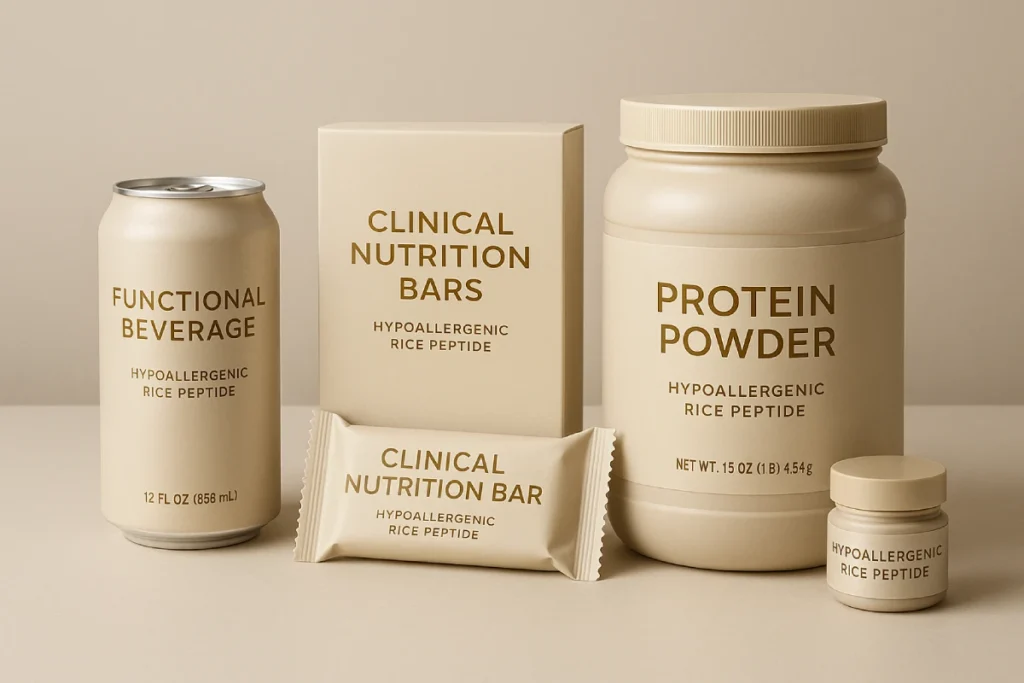
Why partner with EYOSON / PEPDOO®
PEPDOO® (EYOSON’s peptide solutions arm) is a full-spectrum peptide manufacturer and development partner that combines manufacturing scale with R&D depth. Our differentiators for B2B clients:
- End-to-end peptide know-how (from enzyme selection to final powder formulation).
- Proven experience in setting industry practice and holding patents in small-molecule peptide technologies.
- Ability to deliver GMP-grade powders and liquids, custom peptide blends, and regulatory support for multiple export destinations.
When you choose EYOSON / PEPDOO®, you get more than an ingredient — you get a technical partner capable of accelerating product development, minimizing formulation risk, and supporting regulatory or clinical evidence generation required for medical and specialized nutrition markets.
Rice peptide as a strategic functional ingredient
Rice peptide combines hypoallergenicity, rapid bioavailability, neutral sensory profile, and demonstrable bioactivity — a practical toolkit for brands building functional, clinical, and clean-label nutrition products. For B2B teams focused on product performance and regulatory certainty, partnering with a source like EYOSON / PEPDOO® delivers the technical assurance and manufacturing reliability necessary to bring peptide-forward concepts to market at speed.
Ready to explore rice peptide for your next SKU? Contact EYOSON / PEPDOO® for technical dossiers, sample packs, and co-development pathways tailored to infant, clinical, sports, and senior nutrition applications.
Unlock the Potential of Rice Peptide for Your Products
Partner with EYOSON® | PEPDOO® — a full-spectrum peptide manufacturer and industry standard-setter with leading patented technology. OEM/ODM solutions available.
Request Technical Datasheet →Frequently Asked Questions
1. What makes EYOSON® Rice Peptide different from standard plant proteins?
EYOSON® Rice Peptide is produced using advanced enzymatic hydrolysis and proprietary fractionation technology. Compared with standard rice protein, it offers higher bioavailability, better solubility, and lower allergenicity, making it suitable for clinical nutrition, infant, and senior formulations.
2. How can rice peptides be incorporated into functional food or beverage formulations?
Rice peptides have excellent solubility and a neutral taste profile. They can be applied in ready-to-drink beverages, high-protein bars, powdered nutrition shakes, medical foods, and sports recovery formulations without affecting flavor or stability.
3. What are the key nutritional and physiological benefits of rice peptides?
Rice peptides are rich in short-chain amino acids and bioactive fractions that support muscle recovery, antioxidant defense, glycemic balance, and gut health. They also exhibit low immunogenicity, making them ideal for hypoallergenic and sensitive nutrition products.
4. Does EYOSON® offer customized peptide blends or OEM/ODM services?
Yes. As a full-spectrum peptide manufacturer and Chinese industry standard-setter, EYOSON® provides custom hydrolysate design, peptide functionalization, and OEM/ODM formulation services.
5. What are the key technical specifications and regulatory documents available?
EYOSON® provides COA, MSDS, amino acid profiles, peptide distribution, solubility and stability data, and functional test reports. Technical support can also assist with GRAS and FSMP compliance depending on market needs.
6. What successful applications exist for rice peptides in global nutrition brands?
Rice peptides are used by Asian and European clinical nutrition companies in hypoallergenic infant formulas, diabetic-friendly foods, and elderly sarcopenia products. EYOSON® has supported multiple functional beverage launches and protein fortification projects through PEPDOO® raw materials.
7. Can EYOSON® rice peptides be combined with other peptide types?
Yes. EYOSON® specializes in customized multi-source peptide solutions. Rice peptides can be blended with soy, collagen, or fish peptides to enhance amino acid balance, texture, or functional performance in various health applications.
8. How does EYOSON® ensure product consistency and quality control?
EYOSON® operates GMP- and ISO22000-certified facilities with enzyme-controlled hydrolysis, molecular weight standardization, and batch-to-batch peptide fingerprinting to ensure uniformity, purity, and traceability from raw material to final product.
References
[1] Jayaprakash, G., et al. (2022). A Narrative Review on Rice Proteins: Current Scenario and Research Gaps. Nutrients.
[2] Anania, C., et al. (2022). Hydrolyzed Rice Protein-Based Formulas: A Review of Appropriateness for CMPA and Sensitive Populations. Journal of Clinical Medicine, 11(16), 4823.
[3] Tedeschi-Jockers, F., et al. (2021). A new high protein-to-energy enteral formula based on hydrolyzed proteins: Tolerability and efficacy considerations. Nutrition (Clinical Studies). (examples of peptide/whey hydrolysate use in enteral feeds).
[4] Ferri, M., et al. (2017). Peptide fractions obtained from rice by-products: Characterisation and bioactivity screening. PLoS ONE, 12(2): e0170954. (bioactive screening and fractionation methods for rice peptides).
[5] MarketIntelo. (2025). Rice Peptide Market — Global Forecast & Analysis. MarketIntelo report (market sizing and projected CAGR for rice peptide and related hydrolysate products).
